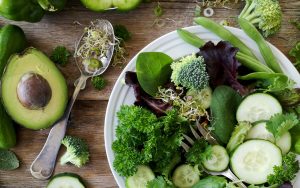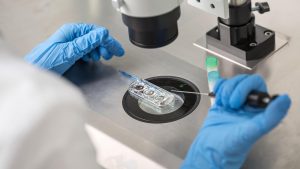Embarking on the path to parenthood can be a challenging journey, often filled with twists and turns. However, prioritising health and well-being is a timeless pursuit, especially when it comes to female fertility. Wondering which foods might enhance female fertility? Let’s explore six nutritious options that could positively impact your journey to conception.
1. Avocados
A nutritional powerhouse for female fertility, avocados are full of essential fats, protein, fibre and essential vitamins and minerals. Avocados are a wonderful source of vitamin E, which has been shown in previous studies to improve the endometrial lining, which is important for healthy implantation. Consider incorporating avocados into your daily meal plan to support your fertility journey.
2. Salmon
Salmon stands out as an excellent protein source rich in omega-3 fatty acids. Research suggests that omega-3 may enhance egg quality, particularly beneficial for women at advanced maternal age. To optimise your health and fertility, consider incorporating salmon into your meals 2-3 times a week for a nourishing boost.

3. Eggs
One of the most nutritious foods you can eat! Eggs are rich in choline, a nutrient that has been shown to have significant positive effects on early foetal development, oocyte quality and can reduce the risk of miscarriage.
4. Beetroot
An excellent source of antioxidant resveratrol and nitrates well known to improve blood flow and increase circulation to your uterus. Studies have previously shown that good circulation and blood flow to your uterus has been linked to a higher probability of a pregnancy.

5. Pomegranates
A fruit that is not only rich in vitamins such as vitamin C and K, but also an excellent source of folic acid and essential anti-inflammatory properties in addition to helping improve blood flow. Pomegranates are great sources of antioxidants too, which are beneficial to both males and females during their fertility journey.
6. Spinach
One of the richest sources of folate you have consume! Folate is an incredibly important nutrient that not only helps form the baby’s spine, but it also has been shown to have a significant effect on implantation, clinical pregnancy and live birth rates. In addition to implantation rates, studies have shown that women who had a folate intake of >800ug/day had better fertilisation rates and reduced cycle failure rates before an embryo transfer.

Find out more about female fertility, including the main causes of female infertility and how Fertility First can help you along your fertility journey.






